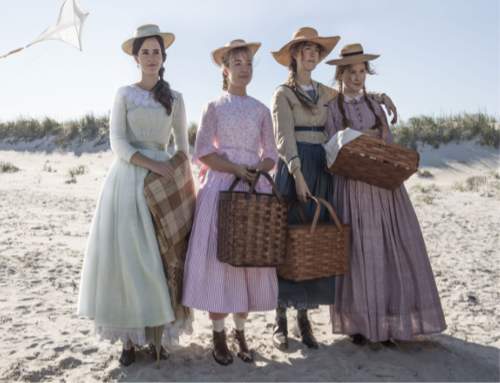SARAH BUCHMANN, STAFF WRITER

Little Women is based on the novel of the same name by Lou- isa May Alcott follows the lives of four sisters in the late 19th century, from childhood games in their attic to the marriages and careers of their young adult life.
There is no doubt that in Gerwig’s adaptation it would take a feminist approach.
Gerwig also directed and wrote Lady Bird (2017), another revolutionary movie about young women and feminism that focused on modern-day issues.
But with Little Women, Gerwig took a deep dive into the author’s life, Louisa May Alcott.
In an interview with Logo and NewNowNext (NNN), is the queer subgenre of Logo that shares LGBTQ+ entertainment news, Gerwig reported finding in one of Alcott’s letters, “I believe I am a man in a woman’s body, for I fall in love with half a dozen pretty girls and I have never felt that for a man.”
Jo, the main character, also talks about her desire to be a boy throughout the novel – though this could be due to the gender roles of the 19th century and how the life Jo wants is more masculine than what society would allow for a woman.
Alcott herself never married or had children, leading some scholars to question her sexuality.
Whatever the case, this adaptation of Little Women draws attention to the lives of the sisters and their romances.
Meg marries John Brooke, Amy marries Laurie, and Jo eventually finds herself with Friedrich Bhaer.
But even Alcott was not satisfied with this match for Jo.
In another letter, she wrote, “Jo should have remained a literary spinster but so many enthusiastic young ladies wrote to me clamorously demanding that she marry Laurie or somebody.”
She continues, calling Bhaer a “funny match” for Jo.
This in itself is true – growing up, I used to think Jo and Laurie were destined for each other but I never believed Bhaer was right for Jo.
This could be because, in the 1994 version directed by Gillian Armstrong, Bhaer looked much older than Jo and their relationship was kind of creepy, but it could also be because Jo should be read as a queer character.
Saoirse Ronan plays Jo in Gerwig’s film and in an interview with Advocate, a source for LGBTQ+ news, she addressed Jo’s sexuality and the possibility of Jo being queer.
“Even though she’s not a very feminine girl herself, I do think she’s really in love with women,” Ronan said.
Ronan also brought up one of Jo’s quotes from the movie: “I want to be able to move freely and I don’t want rules on who I’m supposed to love.”
This can be read in queer context and debated by critics of film, literature, and queer theory alike.
Gerwig addresses the queer subtext in her film in the interview with Advocate: “I didn’t invent it. I felt like it was just there.”
“I just wanted to live with the kind of openness of it and to look at these scenes with that idea behind it, to just sort of live with some ambiguity there, because [Alcott’s] legacy certainly allows for it.” said Gerwig.
Regardless of Alcott’s own sexuality and her intentions for Jo – afterall, we will never truly know what was going on in her head and heart – Little Women remains to be seen as a queer text of sorts, depending how the reader decides to interpret that.
